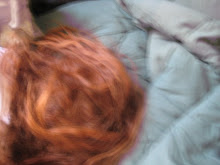i've been thinking about this article i read in the nytimes a few days ago titled, "Where sweatshops are a dream," by op-ed columnist nicholas kristof (http://www.nytimes.com/2009/01/15/opinion/15kristof.html). kristof's arguement is that in many countries the demand for labor is so high that people are forced to rummage through garbage for plastic and aluminum in order to sell them for 5 cents a pound. in these areas, people dream of having factory jobs. kristof says:
"Mr. Obama and the Democrats who favor labor standards in trade agreements mean well, for they intend to fight back at oppressive sweatshops abroad. But while it shocks Americans to hear it, the central challenge in the poorest countries is not that sweatshops exploit too many people, but that they don’t exploit enough."
and later...
"I’m glad that many Americans are repulsed by the idea of importing products made by barely paid, barely legal workers in dangerous factories. Yet sweatshops are only a symptom of poverty, not a cause, and banning them closes off one route out of poverty. At a time of tremendous economic distress and protectionist pressures, there’s a special danger that tighter labor standards will be used as an excuse to curb trade.
When I defend sweatshops, people always ask me: But would you want to work in a sweatshop? No, of course not. But I would want even less to pull a rickshaw. In the hierarchy of jobs in poor countries, sweltering at a sewing machine isn’t the bottom." (bold emphasis mine)
i don't think we can categorize oppression in a descending fashion. poverty is poverty. people do not want to end sweatshop labor so that those employees (the majority, 90 percent, of whom are women aged 15 to 22 according to feminist.org)can search for equally or less exhausting work. the goal is to reform labor, to reform sweatshop factories, and to make these environments livable. it is not that sitting at a sewing machine for 14 hours for 56 cents an hour without a bathroom or water break is easier/harder than searching for plastic in dump yards in the sun, it is that jobs need to be created with hummins in the center--not corporations. afterall, the point of reforming NAFTA is not to eliminate trade, but to make it fair.
it seems like this article was trying to make people feel good about exploiting people of color in developing countries through free trade and through their $5 shirts at wal mart. "sure the shirt i'm wearing came from a sweatshop, but at least i'm helping to give a person a job!" ignoring labor standards and the essentials of living wages shouldn't make you feel good about the fact that a person has a backbreaking, often in cases disease-causing, barely paying job.
Tuesday, January 20, 2009
Monday, January 19, 2009
lemme holla atcha for a hot second
the l word is in its last season, which i guess means it's time to forget about characters, plots and integrity. seems like ilene scrolled l word chat sites, gathered that most people hate jenny, and decided the most creative way to say au revoir was to drown her in a pool. but that's old news; what really bothers me is that the characters feel different this season. shane's edgy and headstrong personality goes limp to jenny's secret love(we get that you messed up, but i don't think dating her was really in the stars). and then there's this:

shane and tasha throw down their levis 501's and christian dior homme for that little black dress every girl dreams of. why couldn't tasha have worn that dashing suit from season 6 ep 2? i bet the police academy didn't nearly appreciate it as i would have. and high heals!?!? the l word has always been lackluster at portraying any lesbian outside of the male fantasy stereotype, and at the end they take their two characters who hang two notches to the right of the femme spectrum and turn them into showtime's barbie dykes. not to mention, on one of the season four l word dvds max is wearing high heals. just like in the first episode of season six when tina and the cast get upset that marketing has changed the movie's ending to appeal to men, so have certain characters' appearances been altered to bring a rockettes consistency to the cast.

shane and tasha throw down their levis 501's and christian dior homme for that little black dress every girl dreams of. why couldn't tasha have worn that dashing suit from season 6 ep 2? i bet the police academy didn't nearly appreciate it as i would have. and high heals!?!? the l word has always been lackluster at portraying any lesbian outside of the male fantasy stereotype, and at the end they take their two characters who hang two notches to the right of the femme spectrum and turn them into showtime's barbie dykes. not to mention, on one of the season four l word dvds max is wearing high heals. just like in the first episode of season six when tina and the cast get upset that marketing has changed the movie's ending to appeal to men, so have certain characters' appearances been altered to bring a rockettes consistency to the cast.
Subscribe to:
Comments (Atom)
